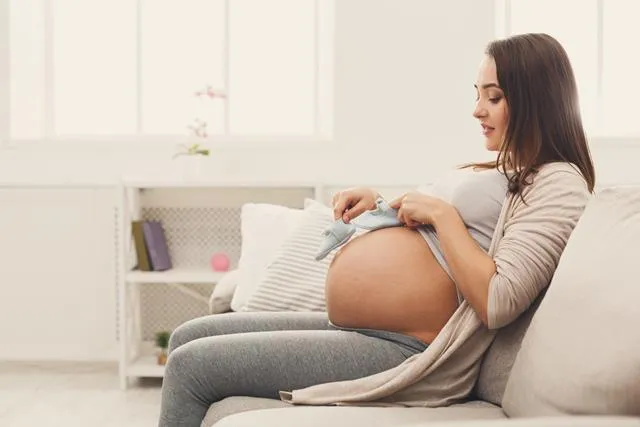Cystitis in pregnancy is one of the most common ailments that afflict mothers-to-be. In most cases, it is caused by a bacterial infection, so it should not be underestimated, as the complications are dangerous for the developing baby.
During pregnancy, a woman is particularly susceptible to urinary tract infections. This is due to the action of hormones on the urethra. Cystitis in pregnancy requires absolute treatment under the care of a doctor. To alleviate unpleasant discomfort, it is also worth using effective home remedies.
Cystitis in pregnancy – symptoms
Symptoms of cystitis in pregnancy can be very annoying or there may be none at all, and the infection is accidentally detected during a routine general urine test, which every pregnant woman should perform once a month. Symptoms that indicate that a urinary tract infection has occurred (dysuric symptoms) are most often:
- lower abdominal pain;
- Frequent urination in small amounts;
- Burning and stabbing pain in the urethra;
- Constant, painful urinary urgency;
- incontinence problems;
- A subfebrile state or fever;
- Blood or purulent discharge in the urine (straw-colored, pink or red).
In the case of asymptomatic cystitis in pregnancy, multiple bacteria of the same strains will be present in the general examination and urine culture performed and repeated after 24 hours.
Cystitis in pregnancy – causes
The urethra in women is short, wide and located in close proximity to the vagina and anus. The sudden changes that occur in the pregnant woman’s body predispose her to greater susceptibility to urinary tract infections. Under the influence of pregnancy hormones, the urethra and ureters lose muscle tone and dilate, making it easier for pathogens to enter the body. The ever-expanding uterus puts pressure on the bladder. Because of this, urine stagnates in the bladder and microbes multiply in the bladder. As a result, cystitis in pregnancy develops.
Bacterial infections, caused by E.coli or staphylococci, are mostly responsible for urinary tract infections. Factors causing the development and recurrent cystitis in pregnancy are:
- reduced immunity;
- gestational diabetes;
- Anatomical defects of the urinary system;
- kidney stones;
- frequent cohabitation;
- Insufficient intimate hygiene;
- immobilization.
Bladder inflammation in the first days of pregnancy often occurs due to increased susceptibility to infection, caused by a sudden change in blood hormone levels. It is considered by some women to be one of the first signs of conception. It is necessary to see a doctor and inform him of the early pregnancy so that he can use antibiotics in the treatment that will not endanger the fetus.
What for cystitis in pregnancy – treatment
Cystitis in pregnancy requires absolute treatment under the supervision of the doctor in charge of the pregnancy. For diagnostic purposes, a general examination and urine culture are performed along with an antibiogram. This will determine the type of bacteria and its sensitivity to particular groups of antibiotics, which will allow the selection of more effective drugs for therapy. The doctor may also order an abdominal ultrasound with special attention to the kidneys.
Medications for cystitis in pregnancy are usually oral antibiotics. In early pregnancy, always inform your doctor. Not all pharmaceuticals can be used by a pregnant woman, as they have harmful effects on the developing fetus. The treatment lasts about 7 days. After its completion, it is necessary to repeat urine tests.
Cystitis in pregnancy – home remedies
Home remedies for cystitis in pregnancy cannot replace pharmacotherapy and are only a support for it. These include:
- Drinking plenty of unsweetened water, cranberry, black currant or chokeberry juice and herbal infusions of chamomile;
- Taking care of the thermal comfort of the kidney area;
- Proper hygiene of intimate areas: washing twice a day with boiled water and a light cleanser;
- Making soaks from oak bark.
Cystitis in pregnancy – complications
Complications of cystitis in pregnancy are dangerous for the pregnant woman and the developing fetus. A woman most often develops pyelonephritis, which manifests as severe pain in the loins, fever and vomiting. It is the most serious urinary disease that leads to chronic kidney failure.
Untreated cystitis in pregnancy (especially in the third trimester) can cause premature labor, prematurity and low birth weight of the baby. At earlier stages, urinary tract infections cause miscarriages.
See also:
When should prenatal testing be done in pregnancy?
Rate this article:










